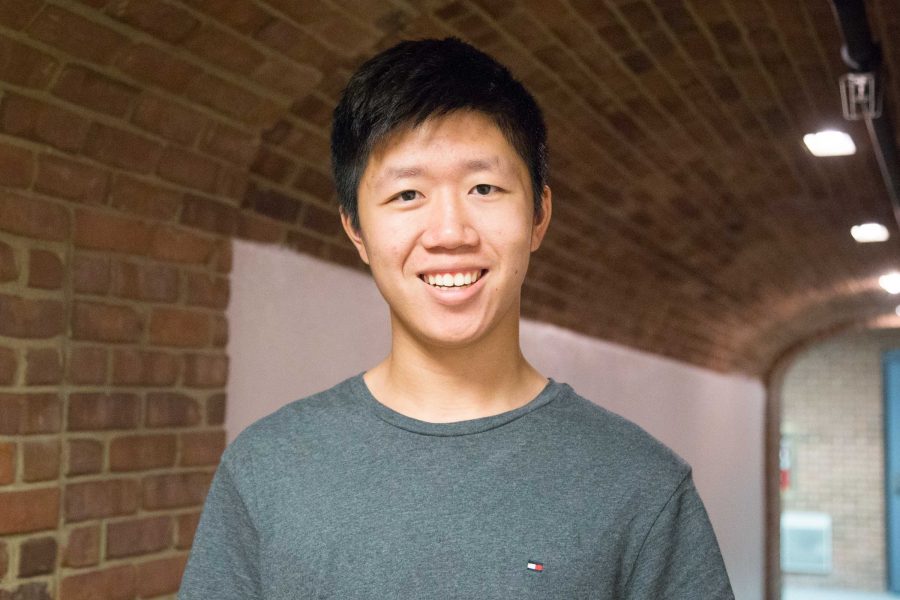Walk from Commons–pass two sprawling lawns, skip the bridge, and walk along the bustle of 21st. Past CVS, past Starbucks, past that slightly mysterious cluster of luxury apartments, cross the road–walk a bit more, alongside buildings that look Vanderbilt-esque yet unknown; cross the road again, through a parking lot and another grove of trees; look left, at the concrete mass of a parking garage, nod, and turn right into the Psychological Counseling Center.
The Vanderbilt University Psychological and Counseling Center, also known as the PCC, is perhaps one of the most useful and sought-out resources on campus. Yet, its distant location, combined with a debilitating stigma around mental health, can make it unaccessible.
The relative isolation of the PCC from most of campus is perhaps for good cause, as it can provide students with privacy, relieving many fears brought on by the intense stigmatization around mental health. Yet, this same isolation places the PCC on an island, separating it from the rest of campus both physically and symbolically.
The long trek to the PCC can feel tiring for a healthy person; for someone struggling with mental illness, the ten-plus minutes of walking can bring feelings of nausea and anxiety. To compound the matters, the PCC itself starts at the reception room, where newcomers must fill out various forms and signatures before entering through a series of cascading hallways, cramped and confining. Students then sit inside one of the waiting rooms, building layer upon layer of anticipation and stress, until their assigned therapist pops their head in. This isn’t meant to be critical of the PCC, as these processes are necessary to keep the service functioning the way it currently does.
The Wall Street Journal reports that to resolve many of these issues, many campuses, from Montana State to Virginia Tech, have been implementing what they are calling an “embedded counselor program.” Rather than centralizing all counseling at a detached location, these universities have been placing counselors inside residential halls and at coffee shops near campus. These schools have reported immediate increases in the number of students willing to seek counseling and help.
Vanderbilt would be helping to destigmatize asking for help with mental health
Vanderbilt is a perfect candidate to greatly benefit from an embedded counselor program. At a school of overachieving students and packed schedules, having to go out of your way to the PCC in a public area can seem intimidating and difficult. Locating counselors near residential areas doesn’t only provide immediate help to residents, but also provides a support network to RAs, an often-neglected group of students who have to take on the burden of caring for their residents.
It also solves the problem of stigmatization, both internalized and from the outside. Students would feel much more comfortable talking to a therapist in a relaxed environment, like Starbucks or an empty dorm room in their house, where others can’t tell that they are going to get counseling. These comfortable environments would also make it easier for students to be open and share. In addition, by bringing counselors into living spaces, Vanderbilt would be helping to destigmatize asking for help with mental health by working it into everyday environments.
Transferring some counselors from the PCC towards empty dorms and common areas would make mental health all the more accessible to students. For example, Vanderbilt could have a few counselors dedicated to first-year students at Commons, another few across upperclassmen dorms and even Rand for lighter cases, and reserve the PCC itself for serious cases. These embedded counselors could form relationships with the students who they regularly serve, becoming an integrated part of the community, similar to a faculty head of house or RA.
Though the environment would be more relaxed, the situation is still serious, and challenges arise when counselors have less control over their sessions. Privacy, both in requesting and receiving help, would have to be carefully guarded, perhaps through a secure mobile app or through My Health at Vanderbilt, the portal VUMC already. Additionally, while having therapists available around the clock is not feasible, some form of counseling should be available in the evenings, when students are done attending classes and office hours for the day and often when many feel the most stressed and lonely.
Like any health problem, mental health issues often feel debilitating and constricting. While they may not physically prohibit someone from seeking help, the combined self-doubt and social stigmatization make it difficult for people who need assistance to find it. Implementing an embedded counselor program could help, and it would make a world of difference to the busy students that keep this university going.
Yuhang Zhang is a first-year in the College of Arts and Sciences. He can be reached at yuhang.zhang











